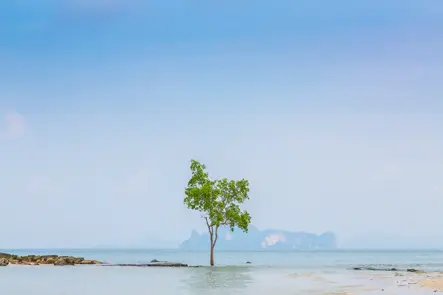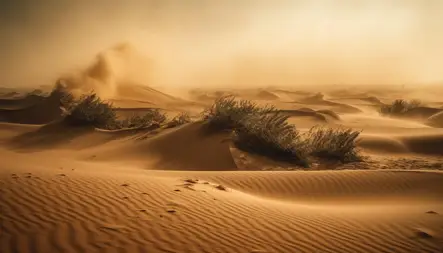Group Interviews: A Must-Read for Returning Overseas Graduates
Group interviews, also known as leaderless group discussions, are a classic interview format that is generally required for non-technical positions. As a recent graduate preparing to return home, many students find group interviews to be the most challenging part of the job application process. In this blog post, we will share some real group interview questions from a major company.
Survival Theme in Group Interviews
In group interview topics, the survival theme is one of the most common. It mainly tests candidates’ logical thinking ability, expression ability, and persuasiveness. There are no standard answers to open-ended group interview questions; as long as your logic is self-consistent and reasonable, it’s acceptable. The answers provided in this article are for reference only.
Topic One: Survival at Sea/Robinson Crusoe’s Drift/Survival on a Deserted Island

Question: Suppose you are Robinson Crusoe drifting at sea, and you have these items: matches, plastic cloth, mirror, food, water, and compass. “Now you can’t carry so much anymore, which one would you throw away first? Which one would you keep last?”
Analysis: Mirror - Water - Food - Plastic Cloth - Compass - Matches
-
Mirror: The mirror is the most important thing for you. Robinson Crusoe wouldn’t be able to drift to land even with an abundance of food. The safest method is to use the mirror’s reflection to signal passing ships for help.
-
Water: Scientific research shows that in the absence of food, if there is sufficient water supply, the survival limit of humans is 90 days. But without water, under a temperature of 16 to 23 degrees Celsius, people can generally only survive 10 days; if they are in high temperatures of 36 degrees Celsius, they can only survive 3 days.
-
Food: Necessary for survival, replenishes physical strength.
-
Plastic Cloth: The temperature difference between day and night at sea is large. The plastic cloth can be used for warmth and can also catch fish that float on the sea surface (referring to fish and shrimp with weak vitality or those that are dead).
-
Compass: The ship has already lost its direction. In the vast sea, the compass is not very useful and may even tempt people to leave the crash site and miss the rescue team.
-
Matches: Without combustible material, matches are useless.
Topic Two: Desert Survival Story

Content
-
In the hot August, your small plane crashed in the Sahara Desert. The fuselage was severely damaged and would catch fire and burn.
-
Before the plane burns, you only have fifteen minutes to retrieve items from the plane.
-
Question: In the plane crash, if you could only choose five items from fifteen items considering the desert situation, how would you choose according to the importance of the items? Please explain your reasons.
Desert Situation
-
The location of the plane cannot be determined; it is only known that the nearest town is a coal mine town seventy kilometers away.
-
The daytime temperature in the desert is 40 degrees Celsius; nighttime temperatures can drop to 5 degrees Celsius at any time.
Assumptions
-
The number of survivors on the plane is equal to your group number. You are lightly dressed and only wearing short-sleeved T-shirts, jeans, sweatpants and sneakers; everyone has a handkerchief.
-
Everyone in the group hopes to advance and retreat together.
-
All items on board are in good condition.
Item List
Please choose the five most important items from the following fifteen items:
-
A flashlight (with four batteries)
-
A military knife
-
A flight map of this desert area
-
Seven large plastic raincoats
-
A compass
-
A small measuring box (with thermometer, barometer, rain gauge etc.)
-
A 0.45 caliber handgun (with bullets)
-
Three parachutes (with red and white patterns)
-
A bottle of vitamin pills (100 pills)
-
Ten gallons of drinking water
-
A makeup mirror
-
Seven pairs of sunglasses
-
Two gallons of vodka
-
Seven thick clothes
-
An encyclopedia of “Desert Animals”
Analysis: Rescue signal tools and resources necessary for survival: Mirror - Thick Clothes - Water - Flashlight - Parachute - Military Knife - Plastic Raincoat - Measuring Box - Handgun - Sunglasses - Compass - Aviation Map - Book - Vodka - Vitamin Pills
-
Makeup Mirror: Among all items, a mirror is key for rescue efforts. A mirror can produce an equivalent light of seventy thousand candles under sunlight; if it reflects sunlight, it can be seen from the other end of the horizon. As long as you have a mirror, the chance of rescue is 80%.
-
Thick Clothes: 40% of the human body is water, and sweating and breathing will cause water loss. Staying calm can slow down the dehydration rate. Wearing thick clothes can reduce the evaporation of water on the skin surface. Without thick clothes, the time to sustain life will be reduced by one day.
-
Four Liters of Water: If you have the above two items, you can survive for three days. Water helps slow down the dehydration rate. When you are thirsty, drinking water can keep your mind clear. But when the body starts to dehydrate, drinking water doesn’t help much.
-
Flashlight: A flashlight is the fastest and most reliable tool at night. With a mirror and a flashlight, you can send out a distress signal 24 hours a day; and you can use a flashlight as a reflector and glass as a signal, and it can also be used to ignite fire.
-
Parachute: It can be used for shade and to send out signals. Use cacti as tent poles, parachutes as tent tops, and the temperature can be reduced by 20 degrees.
-
Military Knife: You can cut up cacti to obtain plant juice and pulp as food, and cut cacti to make tent poles.
-
Plastic Raincoat: It can be used as a (water collector). Dig a hole in the ground, cover it with a raincoat, and then put a small stone in the middle to make it funnel-shaped. The temperature difference between day and night can cause the moisture in the air to attach to the raincoat, and the water droplets on the raincoat will be stored in the flashlight.
-
Measuring Box: It can store water and food (cactus pulp and juice).
-
Handgun: After the second day, it is very difficult to speak and act. Ammunition is sometimes used for fire or to make noise to attract rescue. Countless incidents were not discovered because survivors could not make a sound. Also, the gun handle can be used as a hammer.
-
Sunglasses: There will be photophobia under intense sunlight. Using parachutes for shade can prevent eye damage, but sunglasses are more comfortable.
-
Compass: Except for its reflective surface for signaling, it is useless and may even tempt people to leave the crash site and miss the rescue team.
-
Aviation Map: It can be used for fire or toilet paper, and it will also tempt people to walk out of the desert.
-
Book: The biggest problem is dehydration rather than hunger; hunting gains are equivalent to losing water, and there are not many animals visible in the desert. Eating also requires a lot of water to aid digestion.
-
Vodka: Intense alcohol will absorb body water, which is even more deadly; it can only be used temporarily to lower body temperature.
Vitamin Pills/Salt Tablets: People overestimate the use of salt too much. If the salt content in blood increases, it also needs a lot of water to reduce the salt content in the body.
Aniday's HR Services
Headhunting Service
Find and recruit quality candidates in just 1 week! Supported by 40,000 experienced headhunters in IT, Finance, Marketing… capable of recruiting in any region.
Headhunting Service ➔Employer of Record (EOR) Service
On behalf of your business, we recruit employees and handle payroll without the need to establish a company in markets such as Vietnam, Singapore, Malaysia, India, Indonesia…
Employer of Record (EOR) Service ➔